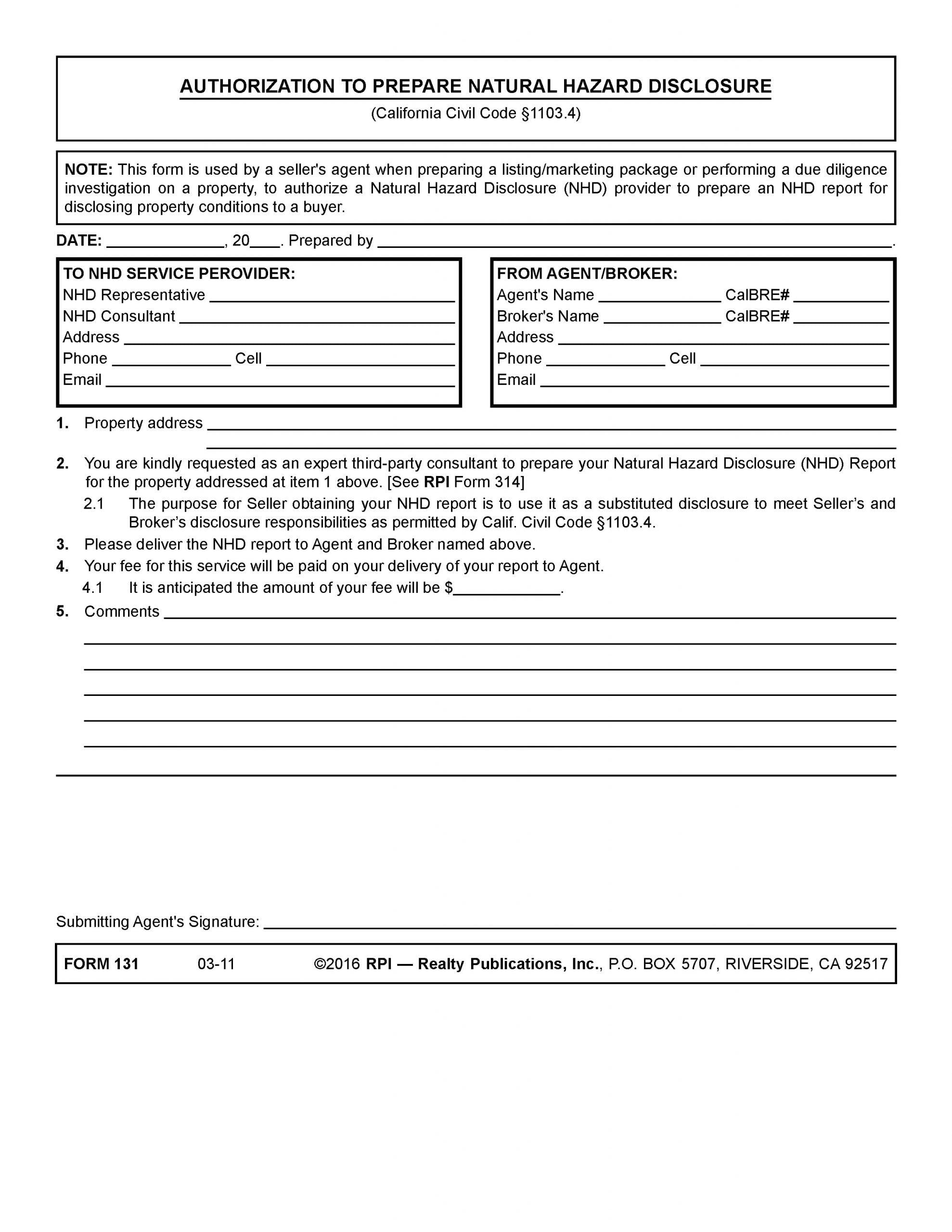A sellers agent’s general duty to voluntarily disclose property conditions
A sellers broker and their agents have a special fiduciary agency duty
On locating a prospective buyer, either directly or through a buyers agent, the sellers agent owes the prospective buyer, and thus also the buyers agent, a limited, non-client general duty
What is limited about the duty is not the extent or detail to which the sellers agent may go to provide information, but the minimal quantity of fundamental information and data about the listed property which the sellers agent must deliver to the prospective buyer or the buyers agent before the seller enters into a purchase agreement.
The information disclosed by the sellers agent need only be sufficient in its content to place the buyer on notice of facts which might adversely affect the property’s value or interfere with the buyer’s intended use.
The sellers agent uses a Seller’s Listing Agreement when entering into the employment of an owner of a property for a fixed time, to list the property for sale, locate a buyer and sell the property. The Seller’s Listing Agreement gives the agent authority to order out disclosure reports on the property, as this article will discuss. [See RPI Form 102]
A unified NHD disclosure for all real estate sales
Natural hazards are risks to life and property which exist in nature due to a property’s location. [See RPI e-book Real Estate Principles, Chapter 17]
Natural hazards are different and thus separately disclosed from the human-made conditions of the property. The existence of a hazard due to the geographic location of a property affects its desirability, and thus its value to prospective buyers — a material fact requiring disclosure at commencement of negotiations — ASAP.
Locations where a property might be subject to natural hazards include:
- special flood hazard areas, a federal designation;
- potential flooding and inundation areas;
- very high fire hazard severity zones;
- wildland fire areas;
- earthquake fault zones; and
- seismic hazard zones. [Calif. Civil Code §1103(c)]
Hazards, by their nature, limit a buyer’s ability to develop and use the property, obtain insurance or receive disaster relief. The existence or lack of a natural hazard on a particular property irrefutably affects the property’s desirability, and thus, its value to a prudent buyer.
Whether a seller lists the property with a broker or markets the property themselves, the seller needs to disclose any natural hazards known to the seller, including those readily available in public records.
A seller or their agent present these disclosures in the statutorily-mandated Natural Hazard Disclosure (NHD) Statement, a form unique to California. [See RPI Form 314]
Related video:
Use of an expert to avoid seller and sellers broker liability
Delivery of natural hazard information by a seller to a prospective buyer is mandated on all types of real estate. [CC §1103.1(b)]
A seller, and their agent by extension, needs to exercise ordinary care in gathering natural hazard information, either on their own or with the assistance of an NHD expert, such as a geologist. Preparing or obtaining an NHD report is a mandated activity completed immediately after the sellers agent enters into a listing employment with the seller and before marketing the property. It must by marketing principles be available for delivery to prospective buyers who seek more information on a property than presented on a promotional marketing flyer.
Here, the expert prepares the NHD form for use by the seller and the sellers agent. The seller and their agent on receiving the completed form, review it, add any comments, sign it and include it in the marketing package to be delivered to prospective buyers. [CC §1103.4(a)]
For the seller and their agent to rely on an NHD report prepared by a third party, the sellers agent need only:
- request an NHD report from a reliable expert in natural hazards, such as an engineer or a geologist who has studied public records;
- review the NHD form prepared by the expert and enter any actual knowledge the seller or sellers agent may possess, whether contrary or supplemental to the expert’s report; and
- sign the NHD Statement provided by the NHD expert and deliver it with the NHD report to prospective buyers or buyers agents on commencement of negotiations (always prior to the seller’s acceptance of an offer). [CC §1103.2(f)(2)]
The Natural Hazard Disclosure encourages brokers and their agents to use natural hazard experts to gather and report the information publicly available from the local planning department rather than do the work themselves. This practice relieves the sellers agent of any liability for errors unknown to the agent.
Related video:
Hiring an NHD expert
A sellers agent prepares the Authorization to Prepare Natural Hazard Disclosure published by Realty Publications, Inc. (RPI) to authorize an NHD expert to prepare an NHD report. The NHD report will be included in the agent’s marketing package to disclose a property’s natural hazard conditions to a buyer, part of a due diligence investigation on a property. [See RPI Form 131]
The Authorization to Prepare Natural Hazard Disclosure contains:
- the property address [See RPI Form 131 §1];
- a statement that the expert is being retained to prepare an NHD report for the identified property [See RPI Form 131 §2];
- the identity of the person the NHD report will be delivered to when complete [See RPI Form 131 §3]; and
- the anticipated fee owed the expert on delivery of the report to the agent. [See RPI Form 131 §4]
Related article:
The Structural Pest Control (SPC) report
Unlike a Natural Hazard Disclosure (NHD), a Structural Pest Control (SPC) report is not a legislatively mandated disclosure in a California real estate transaction. Most mortgage lenders no longer require a report or clearance.
However, a prudent buyers agent is alert to the rule they are duty-bound to act in the best interests of their buyers. Thus, as a matter of good practice, buyers agents simply prepare purchase agreement provisions calling for the seller to provide an SPC inspection, report and certification when not previously delivered to the buyer or the buyers agent.
Thus, an SPC contingency provision is placed in the purchase agreement to eliminate uncertainty about the property’s condition, regardless of the failure of the buyer’s purchase-assist mortgage lender to confirm the integrity of the improvements on the property. [See RPI Form 150 §12.1(a)]
Upfront disclosures by the sellers agent before the seller accepts a buyer’s offer promotes transparency in real estate transactions and eliminates asymmetric property information otherwise inherent in any transaction. Transparency by upfront disclosure avoids the seller’s and broker’s personal liability for withholding information about a material fact known or should have been known to the seller or the sellers agent until after the seller accepts an offer from a prospective offer — conduct called intentional deceit.
The existence of pests, such as termites, adversely affects the value of property equal to the cost of remediation. Since these facts relate to value, disclosure is compelled before the buyer sets the price and closing conditions to be included in an offer submitted to the seller. [See RPI e-book Real Estate Practice, Chapter 28]
In a transparent real estate market, the report and clearance are part of a competently prepared and assembled marketing package a prudent sellers agent prepares and delivers to prospective buyers on the commencement of negotiations. A buyer’s or their agent’s request for further information on a property constitutes the commencement of negotiations for the purchase of a property. Property disclosures are mandated to be made on commencement of negotiations.
Related video:
The Authorization to Structural Pest Control Operator
A sellers or buyers agent uses the Authorization to Structural Pest Control Operator published by RPI to authorize a Structural Pest Control operator to prepare an SPC report for disclosing property conditions to a buyer. [See RPI Form 132]
The Authorization to Structural Pest Control Operator form gives the SPC company specific information regarding the requested inspection, including:
- the agent’s contact information;
- the property address;
- the owner’s name, address and phone number;
- the request to inspect and deliver their report or Certificate of Corrective Conditions (when applicable) to the agent;
- who to contact for access to the property;
- who is to pay the fee to the SPC company for their services (owner, buyer or agent);
- where to send the bill; and
- the anticipated fee to be paid for their services. [See RPI Form 132]
Related article:
Brokerage Reminder: Timely termite inspections – eliminate the risk
Want to learn more about the required disclosures in a home sale? Click an image below to download the RPI books cited in this article.


















